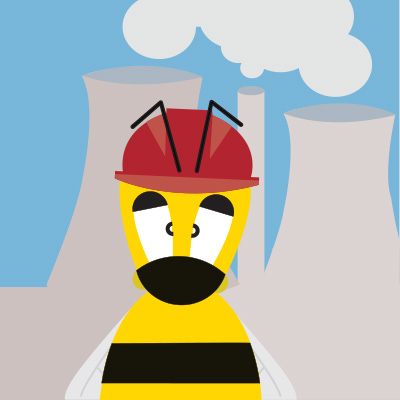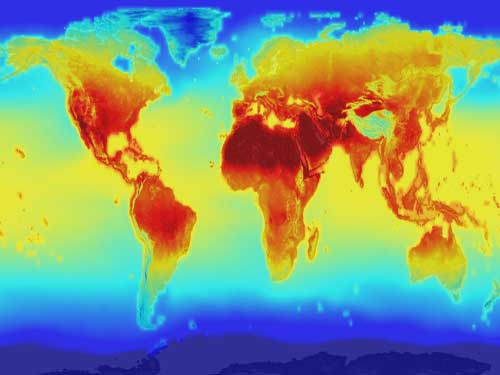Site Prices Update
Last Updated28th June 2022
All calculations on this site are based on current fuel prices, they are checked regularly and calculations are automatically updated.
The costs calculated based on these fuel prices should be regarded as 'good estimates', given that fuel prices vary in different parts of the county and at different time of the year.
The calculations also have different levels of accuracy depending on the nature of the calculation. For example calculating the energy use of a known power output TV is very easy compared to calculating the effect on energy savings when insulating a cavity wall.
Site Calculations
Set Your Own Prices
User PricesFor several of the fuel prices on this site you can now set your own prices and all the calculations on the site will adjust accordingly.
Set Prices
At Confused About Energy we aim to provide practical, impartial advice on all aspects of energy usage, climate change and ways to save money on energy bills.
All calculations on this site are based on current fuel prices they are checked regularly are automatically updated and were last changed on:-
28th June 2022
The costs calculated based on these fuel prices should be regarded as 'good estimates', given that fuel prices vary in different parts of the county and at different time of the year.
The calculations also have different levels of accuracy depending on the nature of the calculation. For example calculating the energy use of a known power output TV is very easy compared to calculating the effect on energy savings when insulating a cavity wall.
Site Calculations
| Electricity | £0.271 per unit (1 kWh) |
| Economy Electricity | £0.094 per unit (1 kWh) |
| Gas | £0.072 per unit (1 kWh) |
| Domestic LPG | £0.122 per unit (1 kWh) |
| Heating Oil | £0.104 per unit (1 kWh) |
| UK Grid CO2 Emissions | 0.233 kg per kWh used |
The main units used in this site are in the table below, For a complete explanation of power and energy Read More.
| Unit | Name | Detail |
|---|---|---|
| W | Watt | Unit of Power |
| kW | Kilowatt | 1000 watts |
| kWh | Kilowatt hour | Measure of Energy |
| L | Litre | Measure of Volume |
Please use twitter to ask a question Message @@EnergyThinking
What is discussed in the newspapers is the climate change associated with humanities use of fossil fuels.
When burned fossil fuels emit the gas carbon dioxide and in turn the carbon dioxide acts to trap the heat in Earths atmosphere in much the same way that heat is trapped in a greenhouse, hence the name the “greenhouse effect”

We burn fossil fuels to provide energy for transport, heating, electricity, agriculture and many other things. The problem for our planet is that the rate of carbon dioxide emission from burning these fuels is greater then the rate that the planet can reabsorb it, as a consequence the greenhouse effect increases and the planet warms. It has happened naturally before but it took thousands of years, humanity is achieving the same results in just over 100 years and the consequences will be more turbulent weather, crop failure, sea level rises, mass extinction and inevitably famine as agriculture fails. On the plus side there may be more excuses for a cold lager in the sun.
Some with business interests in oil gas and coal deny that human induced climate change exits at all, but the vast majority of qualified climatologists agree that it is happening and accelerating.
Many governments are now looking to ways to support their energy needs without fossil fuels using renewable energy solutions. Whilst this is good, on a global scale as the use of renewable energy increases so does the use of fossil fuels, we are actually burning twice the amount of fossil fuels that we did 30 years ago. The availability of cheap energy drives population increase and in turn increased populations require more energy. It is simply not possible to deny the world population energy without causing famine. Governments increasingly face the choice of using renewable energies and their populations living in poverty or the use of fossil fuels.
Without radical change over the next 30 years we will burn even more fossil fuel than we do now, even though we will make increasing use of renewable energies. Very few national governments will risk their economies or the wrath of their voters and lobby groups by removing their source of cheap energy. Even immediate advances in technologies like Nuclear Fusion are unlikely to propagate across the planet fast enough to substitute for fossil fuels use.
Until sensible solutions are delivered should we mitigate the effect of increases carbon dioxide levels, by removing it upon power generation perhaps by chemically removing it from the atmosphere or more radically by partially screening the planet from the sun? What is possible, what is the scale of the problem?
World Climate Change Metrics
(2021)
↑
Annual
+11353 TWh↑
Decade
2040 149000 TWh to 171000 TWh
(2021)
↑
Annual
+2.6 Gt↑
Decade
2040 36 Gt to 46 Gt
(2021)
↑
Annual
+835 million↑
Decade
2040 8.45 billion to 9.5 billion
(2021)
10+Gt CO2
↑
Annual
+1168 TWh↑
Decade
2040 10000 TWh to 13000 TWh
(2021)
↑
Annual
+24 ppm↑
Decade
2040 450 ppm to 500 ppm
(2022)
↑
Annual
+0.26°C↑
Decade
2040 1.5°C to 2.5°C
(2020)
–
Annual
+46.5 mm↑
Decade
2040 150 mm to 200 mm
(2020)
↓
Annual
0.95 million km2↓
Decade
to 2 million km2
2040 2 million km2
to 0 million km2
(2020)
↓
Annual
-1600 Gt↓
Decade
2040 -7000 Gt to -10000 Gt
(2020)
↓
Annual
-2500 Gt↓
Decade
2040 -7000 Gt to -10000 Gt
Each Decade
↓
Decade
(2019)
↑
Annual
+2169 TWh↑
Decade
2040 9000 TWh to 12000 TWh
(2018)
↑
Annual
0.96 Gt↑
Decade
2040 5.4 Gt to 7.2 Gt
≅4.6 GtCO2 emissions prevented
Example 50% gas power generation substituted with renewables
≅2 GtCO2 emissions prevented
≅3.7 GtCO2 emissions prevented
Example 50% gas power generation with CCS
≅1.6 GtCO2 emissions prevented
(2017)
↑
Annual
543 TWh↑
Decade
2040 1250 TWh to 2200 TWh
(2015)
↓
Annual
0.336 million km2↓
Decade
to 39.7 million km2
2040 39 million km2
to 39.5 million km2
























Comments and Questions